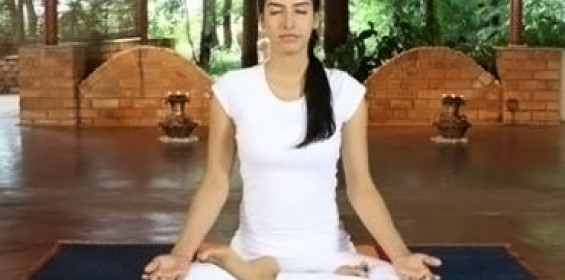Whether you’re a concert guitarist or an amateur drummer; an Olympic Athlete or just learning to play cricket; or a surgeon, student, teacher, or working professional, whatever your pursuit, your performance and ability to learn new things is dependent on our ability to focus.
We’ve all had days—perhaps weeks and even months—when we couldn't seem to focus on anything. It could have been due to the pressures of the workplace or the numerous demands on your time. The one common theme was the end result – you couldn't focus on anything anymore, and it was taking its toll on your performance and your sense of well being.
Many of us struggle with focus. And there are different reasons why we may face trouble focusing – we’re tired, bored, uninterested, anxious, stressed, and so on. The lack of focus predominantly originates from a scattered and restless mind. So, how to bring the mind to focus? Research suggests that people use a range of “smart drugs”—from prescribed ones to the illicit—to boost their work or academic performance. Wouldn't it be safer and healthier to develop focus more naturally by making the mind more restful? There are simple meditation techniques and basic lifestyle activities that can help us here. Let’s have a look at some of them:
Meditation
Several studies have shown that regular practice of meditation can help increase one’s attention span and sustain it. A new study out of the University of Wisconsin-Madison shows that participants, upon practicing meditation, proved better at completing tasks when faced with distraction.
We often hear that meditation requires concentration. Gurudev Sri Sri Ravi Shankar, the founder of the Art of Living Foundation, counters, "Meditation is de-concentration, and alertness and focus of mind are the result of regular meditation practice."
Here is a quick primer on how you could meditate:
• Observing the Breath – Breath is the main source of prana, the vital life-force energy. By simply becoming aware of your breath, you may slip into meditation. A simple tip would be to choose a quiet spot for yourself and keep observing the natural rhythm of the breath for a couple of minutes before meditation.
• Pranayams – The main aspects of pranayams are inhalation, retention, and exhalation. To boost your energy levels, both short term and long term, there is hardly a better method than the regular practice of pranayams. Alternate nostril breathing (hyperlink to the website link), whose Sankrit name is Nadi Shodhan Pranayam is one such beautiful technique that can be practiced for a few minutes just before you begin to meditate. It helps to keep the mind happy, centered, and peaceful.
• Sudarshan Kriya – Daily dose of Sudarshan Kriya incorporates specific natural rhythms of the breath, harmonizing the body, mind and emotions. This powerful yet simple breathing technique, founded by Gurudev Sri Sri Ravi Shankar, helps eliminate stress, leaving the mind calm and focused. Sudarshan Kriya practitioners have reported better immunity, increased stamina and sustained high-energy levels.
• Concentration Pranayam – This two-and-a-half-minute technique can help retain and improve concentration for three hours. The Concentration Pranayam, which is especially effective for students, can be learned at the Art of Living youth courses.
Observe the Day
To make the mind restful and focused, have you ever taken time out and observed the schedule of your day? What do you read? How much time do you spend in front of the TV or laptop? What kind of company do you keep around you?
Reading fiction, magazines, advertisements, or news that agitates the mind with negative stories only makes the mind more restless. The TV and the Internet have the ability to keep the mind unnecessarily occupied with irrelevant banter. Incorporate a bit of light spiritual reading or explore inspirational and thought-provoking ideas and philosophy every day. This helps to settle the mind.
Physical Activity/Yoga
A good amount of physical activity is very essential to make the restless body restful and, in turn, the mind as well. You can practice Sun Salutation (Suryanamaskars) or any set of yoga asanas at a slow pace – paying attention to their every movement and stretch and coordinating them with your breath. A new study finds that just 20 minutes of yoga stimulates the brain functions associated with the ability to focus and retain.
Eat Healthy
"We are what we eat". The food we eat affects not just the body but our mind, thoughts, intellect, and awareness levels as well. A brain-healthy diet is essential to keep your memory and intellect sharp and your mood buoyant. It is better to check on your junk food quotient. Many experts recommend abstaining from non-vegetarian food as well.
Be in the Now
To have focus is to be in the now, and this is a practice one has to stay with again and again . The moment you become aware that the mind has strayed, using your breath as the tool, bring it back to the present. This kind of mindfulness has to be made a way of life.
Focus can have far-reaching consequences in many areas of our lives. And it is worthwhile to invest a little time and effort in sharpening it.
So when was the last time you proactively did something to improve your focus? Ten minutes ago, when you began reading this article. Now take the next step and work toward the difference you want to see in yourself!

































